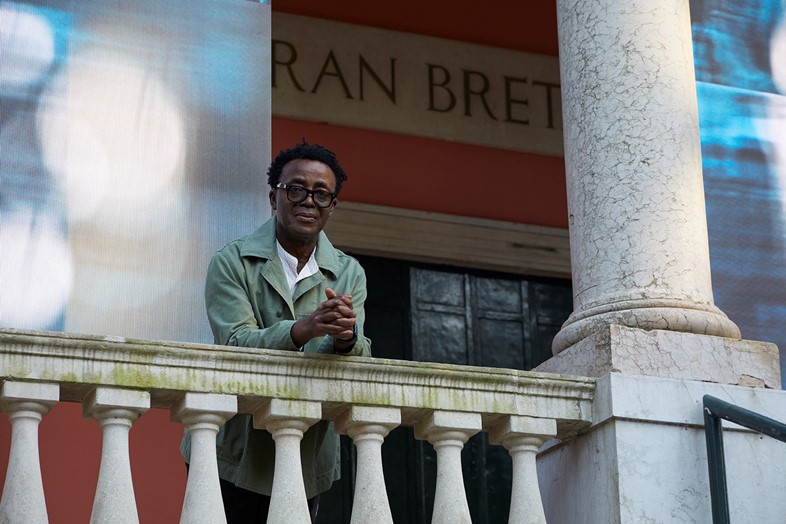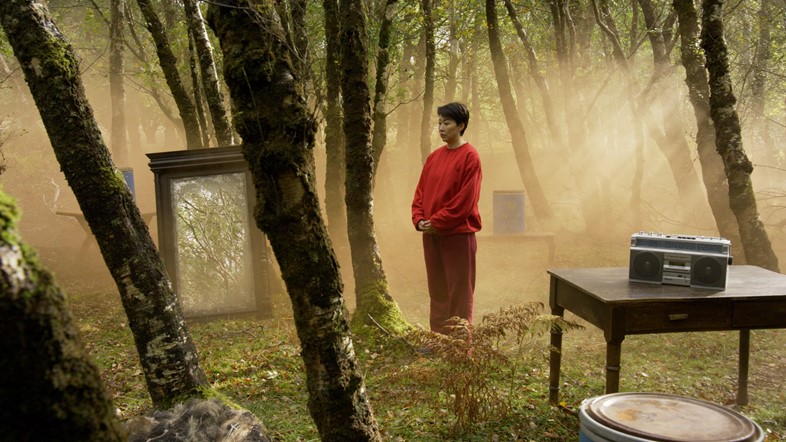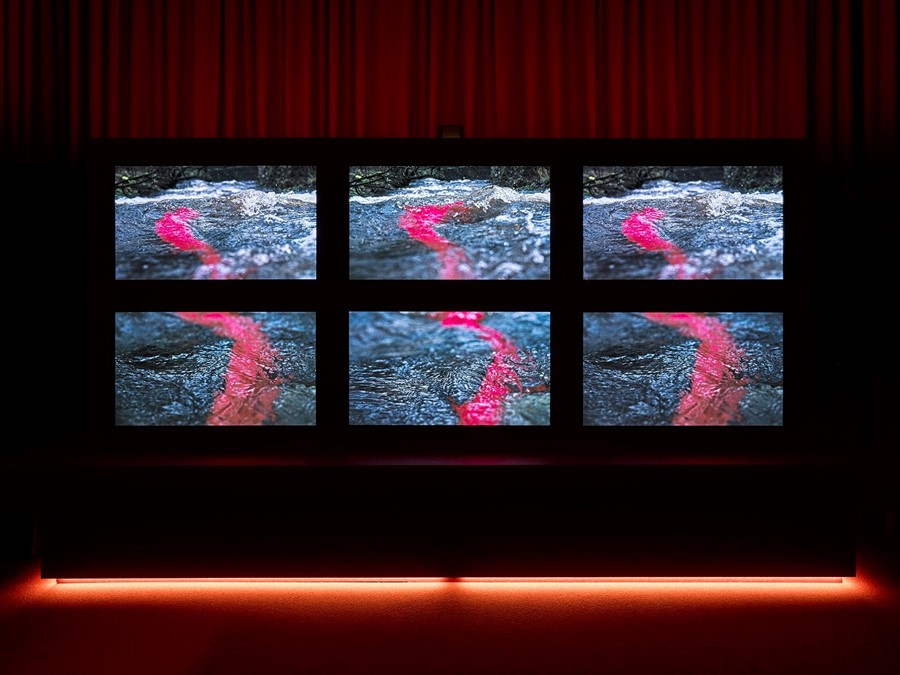As his film installation Listening All Night to the Rain goes on show at the 2024 Venice Biennale, the British-Ghanaian artist talks about ecocide, memory and migration
John Akomfrah refers to his films as poems and, like any great writer of verse, the British-Ghanaian artist has an intuitive gift for melody and rhythm. The sonic has been a quintessential consideration in Akomfrah’s work since Handsworth Songs (1986), The Last Angels of History (1996) and more recently, Purple (2017), but perhaps nowhere more so than in his latest multi-screen film installation: Listening All Night to the Rain, commissioned for the British Pavilion at this year’s Venice Biennale.
This is, of course, familiar territory for Akomfrah, who was one of six artists representing Ghana at the country’s inaugural pavilion in 2019 with his screen triptych, Four Nocturnes. Before that, in 2015, Akomfrah debuted Vertigo Sea in Venice, the first in a trilogy of films that went on to include Four Nocturnes and Purple. Many of the same themes that define that trilogy (and by extension, Akomfrah’s entire oeuvre) – ecocide, memory and migration – return in this latest work. The result, in Akomfrah’s words, is “a sense of old friends being reacquainted, and a new one that’s striking up conversations with them.”

While similar themes persist, the explicit focus on sound sets Akomfrah’s latest work apart. “The music palette will be more diverse, for starters,” explains Akomfrah. “The pavilion will be a set of interlocking pieces rather than just one, so the overall feel of it will be quite discursive.” Akomfrah refers to these interlocking screens as “an archipelago of projects”, each adding their own voice to an overall cacophony. “I’m not as interested in being cohesive with this one,” says Akomfrah. “The fact that they don’t completely cohere is the point of the whole pavilion. I’m unleashing the dogs of war, put it that way.”
But to confuse the film’s sonic focus with disorderly dissonance would be wrong – Akomfrah is, as the work’s title suggests, more interested in the act of listening. Key to this is the idea of acoustemology, a term coined by American anthropologist Steven Feld to describe the highly developed practices of hearing among the Kalui people of Papua New Guinea. Due to the dense rainforest they inhabit, sound presides over sight as the primary way of knowing the world, revealing the time of day, vegetation cycles and canopy heights. For Akomfrah, the term is a “navigatory tool for the entire pavilion”, a way in which the densely interwoven sonic structures can be read and decoded.

Listening, for Akomfrah, has always been a form of activism, one that originated in the formative club spaces of his teenage years. “The references I’ve made to club culture and 70s dub spaces is that, in those spaces, the sonic was an agentive device. We were made, we were created via the sonic, we found ourselves through the music and with the music.” Listening as self-discovery also chimes with Pauline Oliveros, the late American composer known for her meditative philosophy of deep listening. “Everything Pauline was saying about listening as a healing practice is what the pieces will be grappling with. I’m trying to get people to understand that we’re talking about listening as a force, which has profound philosophical, cultural and political implications for how you understand what people are, how they become and what they should be lending their lives to.”
The neo-classical splendour of the British pavilion provides an ideal context for any consideration of cultural and political forces, and Akomfrah has relished the encounter. Unlike the temporary space conceived for the Ghanaian pavilion, the British pavilion has offered the artist more historical baggage, more to push back against. “You can’t ignore what it is,” he says. “It is the British Pavilion, it’s a high colonial project and it’s been there forever. Basically, the decision was, how much conversation are you going to have with the place itself?”
The British Council commission Listening All Night To The Rain at the Venice Biennale 2024 is sponsored by Burberry and is on show from 20 April – 24 November 2024.
